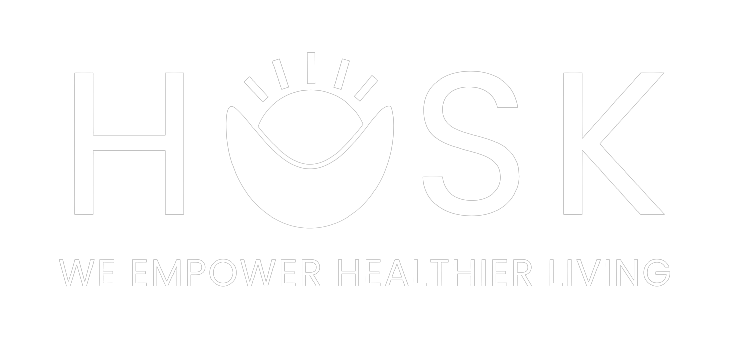
World Vegan Day
November 1st officially marks another World Vegan Day. Are you planning to celebrate or are you even just a little veg-curious? Let’s break down what a vegan is and we’ll even give you the top 5 things to consider for nutrition before diving into it.
What Is Veganism?
According to The Vegan Society, “Veganism is a philosophy and way of living” and that “in dietary terms it denotes the practice of dispensing with all products derived wholly or partly from animals.” The most basic way to define veganism is to avoid all animal foods, including meat, poultry, fish, dairy products, eggs and honey.
Plant based diets and veganism are buzzwords right now. However, veganism dates back to ancient times, and the term “vegan” has actually been around since the 1940’s when a group of friends came together to create a word for the way they ate. The word vegan, and a vegan lifestyle, have evolved in more modern times and are becoming an ever increasing popular way of life. From 2014 – 2017, the number of Americans identifying as vegan increased from 1% to 6% and continues to grow.
Top 5 Nutrients to Consider When Going Vegan
Whether you are currently practicing a vegan lifestyle or considering a change, here are a few nutritional considerations and simple food swaps to help you live a healthier, vegan life!
Protien
Swap out meat with a variety of plant rich protein sources like:
- Beans and Legumes: Chickpeas, Black Beans, Lentils
- Soy: Tofu, soy milk, and tempeh
- Seitan: A high protein alternative that is made using the protein gluten.
- Nuts/Nut Butters/Seeds: Walnuts, Pistachios, Almonds, Almond Butter, Flaxseeds, Pumpkin Seeds, Hemp Hearts
- Vegan Meat Products: Many companies offer meat alternative products now that help to provide the chew and texture of meat without using meat.
“Where do you get your protein?” The answer is pretty simple. Vegans get their protein through beans, legumes, nuts, seeds, grains and vegetables. For example, on average, ½ cup of cooked beans equals about 7 grams of protein which is equivalent to about 1 ounce of meat. Beans and legumes are also packed with fiber and nutrients, which can help to keep you fuller longer.
Protein can also be obtained in a vegan diet through meat alternatives such as tofu, seitan or tempeh. Tofu and tempeh, soy based products, contain between 8 – 15 grams of protein per 3 ounce serving. Seitan, a wheat based product, contains about 18 grams of protein per 3 ounce servings. Look for the products at your local grocery store. And don’t forget to flavor it up with your favorite seasonings and sauces.
Additionally, popular meat alternative brands such as The Impossible Burger and The Beyond Burger contain about 20 – 27 grams of protein per 4 ounce burger. There are also numerous crumbles, sausage, bacon alternatives available on the market.
Omega 3 Fatty Acids
Swap out fish for the following:
- Ground flaxseeds
- Chia Seeds
- Walnuts
- Soy and Canola Oil
- Algae Based Supplements
- Seaweed
The main dietary source of omega 3s are fish and other seafood. Omega 3s are beneficial for cardiovascular health as well as eye and brain health. Make it a daily habit to include one of these items. Mix in flax seeds with your oatmeal, make some chia pudding for breakfast, or sprinkle some walnuts on your salad.
Iron
Plant based sources of iron include:
- Vegetables: Collard greens, Swiss chard, Cooked spinach, Kale
- Legumes: Lentils, Soybeans, Tofu, Black Beans, Chickpeas
- Nuts & Seeds: Pumpkin seeds, Sunflower seeds, Cashews, Pistachios
- Grains: Quinoa, Brown rice, Fortified cereals
Iron is a critical mineral for red blood cell formation. There are two forms of iron – heme and non-heme. Heme iron is found in meat, fish and poultry and is well absorbed in the body. Non-heme is found in plants and is not as well-absorbed in the body. Therefore, vegans need to be mindful of their iron intake as well as strategies to maximize iron absorption.
To help aid in the absorption of iron, pair these foods with Vitamin C food sources such as citrus fruits and red and green foods such as bell peppers, tomatoes, broccoli, and brussels sprouts, whole wheat toast topped with avocado and tomatoes or a warm lentil salad with red bell peppers, broccoli and chard.
Supplements
Fill in the gaps with these nutrients:
- B12 and Vitamin D Supplements: The best and most reliable source.
- Fortified Foods: Some fortified plant based milks and fortified cereals.
A final nutrition consideration when following a vegan lifestyle is the question of supplementation. Vitamin B12, a vitamin naturally occurring in mostly animal sources and critical for red blood cell formation and cell metabolism, should be supplemented. Vitamin D, which also plays a role in nerve, muscle and immune function, and calcium, also necessary for muscle, nerve and vascular function, are also both primarily found in animal sources. Both can be obtained through leafy greens and fortified foods such as plant based milks and juices but may need to be supplemented.
With veganism continuing to become a more popular way of life, plant based offerings will continue to become more available at grocery stores and restaurants. By being mindful of a few key nutrients and making easy swaps, vegans can eat nutritiously and deliciously!
Need some help making a plant based switch or making any other dietary change? It’s always highly recommended to meet with a dietitian before making any major dietary changes and our online dietitians are here to help!
